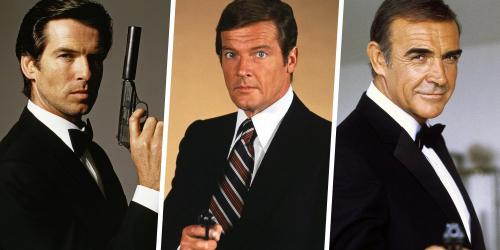Désirée de Lamarzelle: What was your starting point for the theme of this documentary?
Julia and Clara Kuperberg : It is a documentary that was made in 2009 on the representation of the woman on the screen, the actresses from the years of the "Golden Age" until today. Other women, scriptwriters, studio patrons and producers in the 80s were discovered, such as Lyndall Hobbs and Robin Swicord. From there came the urge to talk about those women who are behind the camera. But for us the story began in the 1980s when we realized that women were ubiquitous in the midst of cinema at the turn of the century.
No one had heard of these pioneering women in Hollywood?
Yes, yet at the beginning of the century Hollywood was created by women as producers, studio patrons, directors, screenwriters. They were better paid than men, more represented than men, and really built Hollywood as we know it today.
Hollywood in its origins was built primarily by women?
It was not an industry at the time, it was nothing at all, nobody wanted to go there. It was 23 years before the Hollywood Sign (the Hollywood sign on the southern slope of Mount Lee). There were only farmland, sheep and women, who forbade respectable profession, went out there and began to develop, to engage, to create what is now called cinema.
How do you explain this very high representation of women in the early cinema?
In fact women who had little access to higher education and respectable professions had to choose between life as an exemplary mother and go to Hollywood, which was the only place where they were accepted. There were not many other alternatives for modern women.
And then after?
It is the drama, in two decades they have been completely ousted ...

Archive Image DR
How does your documentary explain it?
He explains it by the economic crisis, the arrival of the speaking. Men must have jobs because there are no more jobs in the East, they need money, and Hollywood has become, little by little, an industry that makes money and thus which is coveted.
An evolution such that today your documentary denounces the machismo that characterizes the film industry?
Yes, it's worse than the American congress. That is to say that there are 6% movies, last year, that were made by women. The figures speak for themselves, without any polemic or propaganda. But the worst is that all these pioneer women have been erased from the history books, they do not appear anywhere. We were even suspected of having invented that women created Hollywood. No one knows that Hollywood was created by women.
They have been "erased from the history books"?
It was in the 1940s that there was a desire to write the memory of the cinema. And so the men - big bosses - who were there began to write erasing women in Hollywood history. This was done consciously, with the will to appropriate the victory. They arrived, they kindly pushed them towards the exit and then they appropriated everything they had created before.
There is one of your speakers who explains to have fallen on images of archives. Did she finally discover everything?
We must pay tribute to her: Allie Acker in 1986 seeks illustrations for her film, she is making a film about women. And there she falls, at Bison Archives, on a box of photographs with women behind the camera, in glued up dress, really steering, behind the camera.

Archive Image DR
And the offspring of these women?
It's a good question. No, we searched but we did not find. There were children but they never rehabilitated the memory of their mother. Alice Guy, before her death, was desperately trying to have the films re-credited on her behalf. She fought in vain for that. When Lois Weber dies, there's just one line in a newspaper. What is not said in the documentary is that most have had terrible lives. They all fell into a depression because they could not bear to be ousted. They were completely despoiled and they ended up really poor, ruined.
And has this documentary made you want to go further?
We were very frustrated by doing it because there is a lot of information that we could not put due to lack of time with a format of 52 minutes ... And we thought we had to to make a fiction of TV series where we follow the trajectory of three women: Frances Marion, Mary Pickford and Lois Weber, with all those that gravitate around and which arrive at several moments of history.
They are incredibly modern characters today, can we say that?
Yes ! For the most part they divorced between three and four times, they aborted, they paid their husbands to let them work without intervening.
Hollywood today, there are some women who have finally succeeded, but they seem superhuman ...
That's it, they must be, they are war machines. There is not much room for failure.
Yet as many girls as men leave cinema schools, they become invisible?
Women who leave film schools are insidiously directed to independent cinema, which makes less money. The mainstream cinema with big studios, big budgets, it is still not entrusted to women. They are offered the following jobs: they are editors, they are scripts, costumers, sometimes producers. But women directors are counted on the fingers of a hand in Hollywood.
What women, today in 2016, do you admire?
Sofia Coppola, Julie Delpy ... And then all the women of which our documentary speaks because they are incredible women. For example Paula Wagner is a woman who has a hallucinating course.
Is cinema a part of your life?
Yes completely! We were raised with the westerns, the musicals. It was the cinéclub at home! And then our producer father who took us every year on his shoots. Clara worked with him for 10 years on documentaries and on American culture and then I joined them and we created our company.
And the woman created Hollywood, Clara and Julia Kuperberg. Selected at Cannes Classics. Broadcast on May 20 on OCS Géants


